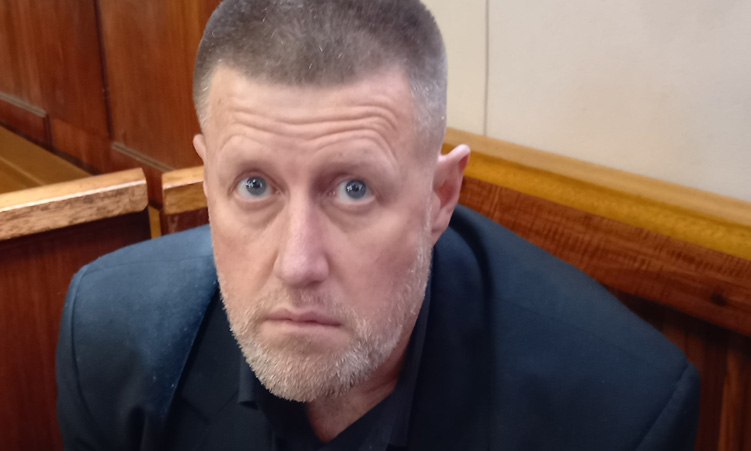A Neuropsychologist says Jandre Dippenaar did indeed suffer memory loss after the fatal crash he was involved in near Henties Bay in 2014.
Willem Annandale was testifying on behalf of the defence in the Swakopmund Regional Court yesterday.
The accident claimed six lives.
Forensic psychometric memory tests revealed strong evidence of Dippenaar’s honesty in his attempts to recall the events, Annandale said.
Contrary to popular belief, the loss of memory has actually worked against Dippenaar’s advantage in the case, he said.
Given the nature of the accident, Annandale deemed it highly probable that Dippenaar sustained a moderate head injury, leading to brain malfunctions like memory loss.
This explains his inability to explain certain details or being unclear in his testimony.
Annandale’s assessment was conducted while Dippenaar was held in custody at Walvis Bay Correctional Facility, after magistrate Gaynor Poulton convicted him on six counts of murder.
Annandale described Dippenaar as a normal young man who enjoyed partying, drinking and driving when younger, and who has later settled down.
On the day of the accident, Dippenaar claimed to have behaved responsibly, abstaining from alcohol, driving cautiously and prioritising his girlfriend, parents and friends, Annandale testified.
A few hours later, a head-on collision near Henties Bay resulted in the deaths of six people.
These included three members of a German family visiting Namibia – Markus and Stephanie Joschko and their daughter Alexandra, and three Namibians – Dinah Pretorius, Charlene Schoombee and JC Horn – who were passengers in the vehicle driven by Dippenaar.
Dippenaar and Antonia Joschko (16) were the sole survivors of the crash.
Dippenaar claimed to have no recollection of the events leading up to the accident, waking up nearly two weeks later in hospital.
“Not pleading guilty is honest and not a retraction from remorse,” Annandale said.
He said Dippenaar had no intention of causing the accident or killing anyone.
He always appeared remorseful and expressed a desire to remember more to make amends, Annandale said.
Dippenaar was described as experiencing ‘survivor’s guilt’ and blaming God for the tragedy.
His attempts to apologise to the victims’ families were either rejected or discouraged by his lawyers, Annandale said.
A friend of Dippenaar, Frans Grobler, described Dippenaar’s emotional state upon learning of the accident and his inability to remember the events.
Dippenaar became reclusive and sombre, and the social media attacks directed at him were both personal and unnecessary, resulting in Dippenaar spending most of his time at home, Grobler said.
Annandale said there were few aggravating factors in determining Dippenaar’s sentencing.
He argued for comprehensive mitigation grounds, citing Dippenaar’s status as a first offender, not being profiled as a hardened criminal, his financial support for his two children, his good character, and his respectful and responsible management of his workers.
“He has already been punished for the past 10 years, and society does not need to be protected against him,” he said, advocating for a suspended sentence.
Jan Horn, the father of JP Horn, expressed his inability to forgive Dippenaar and urged the court to remove him from society.
Antonia Joschko also called for Dippenaar to be held accountable and sent to prison.
In addition to the murder charges, Dippenaar was found guilty of reckless driving and driving without a licence.
Poulton found that Dippenaar drove recklessly, overtaking at high speed in the face of oncoming traffic in a no-overtaking zone.
The trial concluded on Wednesday with oral submissions scheduled for today and sentencing tomorrow.
Dippenaar is represented by lawyers Albert Strydom and Petrie Theron, while the prosecution is represented by state advocate Ethel Ndlovu.
Stay informed with The Namibian – your source for credible journalism. Get in-depth reporting and opinions for
only N$85 a month. Invest in journalism, invest in democracy –
Subscribe Now!






